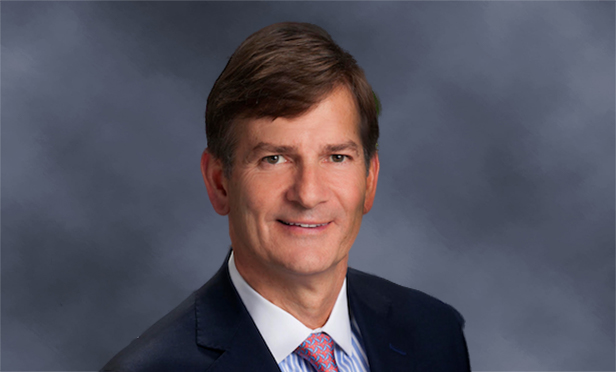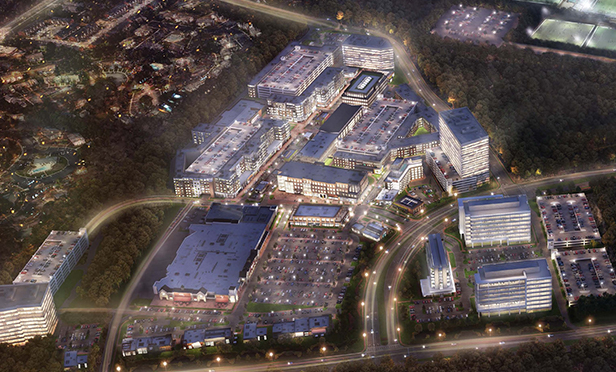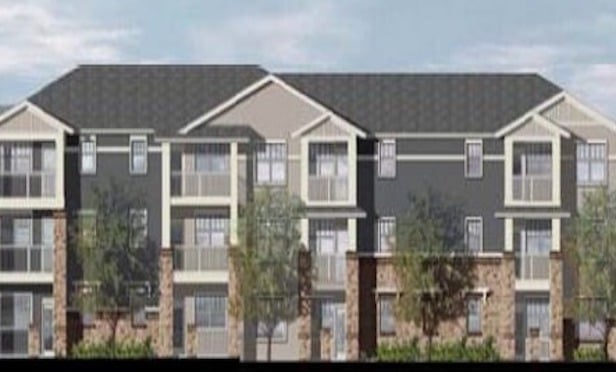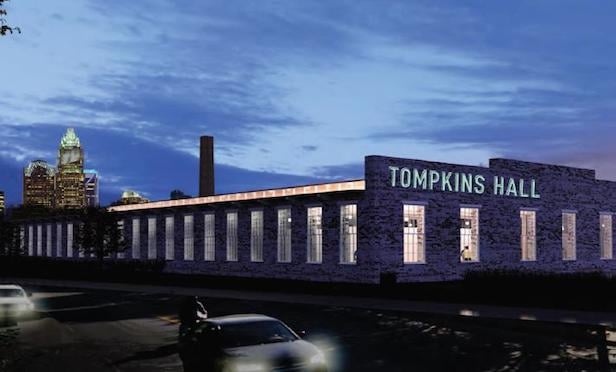
ATLANTA, GA—Technology is playing a major role as mixed use developments dominate many of the major markets around the country, as well as here in Georgia. Ron Pfohl, director of leasing for Columbia Development, has spent more than thirty years in the shopping center leasing and development business. He has played a key role in more than seven million square feet of power center, specialty center, and mixed-use developments throughout the US. Before joining Columbia Development, Pfohl was a partner and director of leasing for North American Properties–Atlanta.
He discussed some of the key trends with GlobeSt.com.
How do you see technology changing mixed-use developments?
Technology is changing every aspect of retail. One of the more significant changes we expect to affect retail over the next few months, and one we are studying closely, is the rapid growth of food delivery services. The year-to-year percentage of sales for apps like Uber Eats is significant, and it's continuing to grow. According to NPD Group, a market research firm, revenue from deliveries increased 20 percent in the last five years, and the overall number of deliveries rose 10 percent. The same report indicated that diners are not only placing delivery orders for dinner, but for breakfast and lunch as well. Families and office workers want great meals from quality restaurants – and they want those meals delivered to their door. Restaurants have to plan ahead to allow for drivers employed by third-party food delivery services to park, pick up and leave in an efficient manner. In mixed-use communities, developers must also account for this trend in the design of housing and office components. It's not just about meeting the needs of the delivery services; it's also about meeting the needs of the residents and employees placing these orders. Forecasting the impact of this trend during the early stages of design will make mixed-use developments more successful in the future.
Another technology trend that will affect mixed-use centers is the rise of self-driving vehicles. Some experts predict that in 15 years, only 20 percent of Americans will own a personal vehicle. Self-driving cars are going to cause a significant change across all industries and will be one of the biggest drivers of change when it comes to mixed-use developments, specifically. This technology will spark a revolution in the way developers think about parking, and it will completely alter how people get to and from these properties.
What amenities are proving to be most effective for attracting tenants?
In mixed-use developments, street activation is key. This can be achieved with high-touch amenities like green spaces, special programming and “wow” wellness factors. These additions bring more people out to properties, creating a vertically integrated mixed-use development that is merchandised in a way to promote cross-shopping and increase dwell time. For example, in the past, it was fine to have a single gym tenant. That doesn't cut it anymore. Fitness has become a social activity and consumers expect a variety of wellness options, like Barry's Bootcamp, Core Power Yoga and Flywheel. Discovering these key ingredients is the first step to curating a recipe for success.
Concierge is another feature that takes mixed-use developments above and beyond other properties. For example, if a customer or employee wants tickets to a sports game or a show one evening, the Concierge on property can make that happen – adding an extra level of convenience and customer service that is unmatched by traditional retail experiences. It's high-touch amenities like these that separate mixed-use developments from one another.
Other than amenities, what can investors do to enhance ROI and increase a building's desirability?
Sponsorships are a great way to drive value for mixed-use developments. For example, at Avalon in Alpharetta, GA, guests can visit the Children's Healthcare of Atlanta building, where their children have the option to play with toys, use the restrooms and just get away from the crowds. Sponsored activations like this offer excellent exposure for brands – and, companies are willing to pay for those placements. These ideal partnerships provide a great amenity for visitors, sponsorship revenue for the property and brand exposure for the sponsor.
A unique sponsorship opportunity catching my eye in recent years is sponsored valet service. Automotive companies like Audi or Mercedes can invest in these partnerships, which can include a myriad of things. For example, Audi's new luxury convertible could be parked near the valet service, allowing visitors and customers to check out the latest features and take photographs. The valet attendants could be wearing Audi branded shirts and signage could be placed throughout the area.
What are some of the retail trends you're noticing?
Any service that consumers cannot access on a smart phone is crucial to retail. Dining experiences are one aspect that can really set a property apart. That's why you're seeing such an emphasis on food halls becoming property anchors – it's an experience guests can't enjoy online. Sure, a consumer can order takeout, but if they really want the experience of going to a restaurant, they have to visit a brick-and-mortar location. Since millennials are staying single longer and having kids later, they are eating out more. They want high-quality dining experiences at a reasonable price, which is why food halls have performed so well. These locations are the opposite of the outdated, chain-focused mall food court of the past. Rather, food halls provide chef-driven concepts that offer consumers culinary experiences that are unique and interesting. People gravitate towards that.
Furthermore, the way retailers make real estate decisions is fundamentally changing. More retailers are experimenting with pop-up shops as a result of the growth of online sales. E-commerce makes it possible to track your most successful zip codes, giving retailers the power to test pop-up brick-and-mortar stores in these locations before committing to a long-term lease or making a major financial investment.
There are many other visible trends in retail. Store footprints are shrinking. Shops are getting smaller, and much of the back of house space has disappeared. Fashion is a tougher market now because it is easy and convenient for consumers to shop online. This means that interactive retail is becoming more and more important. Stores that can build a sense of community both online and in-store are seeing greater success. For example, Lululemon hosts yoga classes and REI has hiking classes.
Cause-related marketing is also becoming a key driver of success. Retailers are making it an important piece of their business model to donate a percentage of their profits to causes they have taken on. This is enticing to consumers because they see their dollars going towards a good cause and not just towards a corporate bottom line.
Online retail is huge. How do you envision brands taking their online presence and integrating it into brick and mortar?
Omnichannel retail is no longer the future – it's happening now. Retailers are discovering how an online presence drives foot traffic to physical stores, and vice versa. If a retailer has a strong online presence, it can easily determine which ZIP code is most successful and put a brick and mortar store there. This method removes a lot of risk, and it also helps online stores across the board increase their web traffic at a minimum of 30 percent. Retailers that successfully strike this balance and create synergy between physical and online stores are achieving better results.
Why is the inclusion of a hotel important for mixed-use developments?
Developers set the tone of their properties with the types of retailers, restaurants and tenants they secure. The same concept applies to hotels. If a development has a hotel like a Loews or a Ritz Carlton, that goes a long way in establishing the character and the level of the property. Different hotels bring in different types of travelers and guests, so it is important that the hotel's brand is consistent with the overall brand of the mixed-use development.
Additionally, consider the sales and foot traffic generated by hotel guests. If a property has a 300-key hotel and runs at 80 percent occupancy, it would bring the development 86,000+ room nights per year. Imagine what that does for the restaurants and retailers on the property. When people are out of town on business or vacation, they are typically eating out and shopping. Hotels have a significant impact on just the sheer amount of dollars pumping into the property. They are a critical component in a mixed-use community from this standpoint.

There are tons of mixed-use projects in the United States. What will make Fenton stand out?
There are a lot of mixed-use properties across the country, but I don't think all of them are great. When I worked on retail leasing for Avalon, we had the opportunity to start from the ground up on a blank canvas at a phenomenal intersection in a high-growth market. Fenton, the mixed-use community I'm currently working on with Columbia Development, is very similar. It's 90 contiguous acres at a popular intersection in Cary, a thriving suburb in the Research Triangle region of North Carolina. Cary is consistently ranked as one of the fastest growing MSAs in the country. The area is experiencing increased population and job growth with a phenomenal college system surrounding it. The demographics are shifting because highly educated college graduates are now choosing to stay in the market. From the quality of life to the low cost of living, everything about this area is attractive. This gives us an opportunity to fill a void in the region. Fenton will introduce an experiential mixed-use destination to Cary, creating a vibrant employment center and community gathering place where people can live, work, dine and shop.
There are a lot of components that will make this development unbelievable. We have a blank canvas. We have the unique opportunity to create the experience we want to create from day one. We can curate every aspect from the beginning without having to come back and do a lot of manipulation. We can look at what's happening in the market, ask “what's next?” and we can build this property specifically for Cary.
What factors do you see driving office growth in 2018?
Single-use office developments are becoming a thing of the past. There is a new era of employees demanding more work/life balance and better office experiences in a highly amenitized work environment. The mixed-use experience is increasingly sought-after by both workers and employers in urban and suburban communities. Whether people are hosting breakfast meetings, grocery shopping at lunch, enjoying happy hour with coworkers, celebrating with family or meeting friends for outdoor yoga, they are looking to spend time in dynamic, activated places that ultimately result in a higher quality of life. This is driving the rapid growth of office space in mixed-use communities, like Fenton.
In Cary, specifically, office growth is being driven by the talent pool that Cary already has access to. The quality of life in the Raleigh/Cary area is just unbelievable. Statistics in this particular area make it ripe for growth and development. Raleigh is one of the most affordable areas in the United States, it's the number one area in technology and it's rated one of the safest places to live in America. All of these factors are driving people and employers to the region and driving office growth and employment as a result. Fenton will become a vibrant mixed-use destination in Cary, helping to recruit and retain major companies and serving as an economic catalyst.
© 2025 ALM Global, LLC, All Rights Reserved. Request academic re-use from www.copyright.com. All other uses, submit a request to [email protected]. For more information visit Asset & Logo Licensing.








